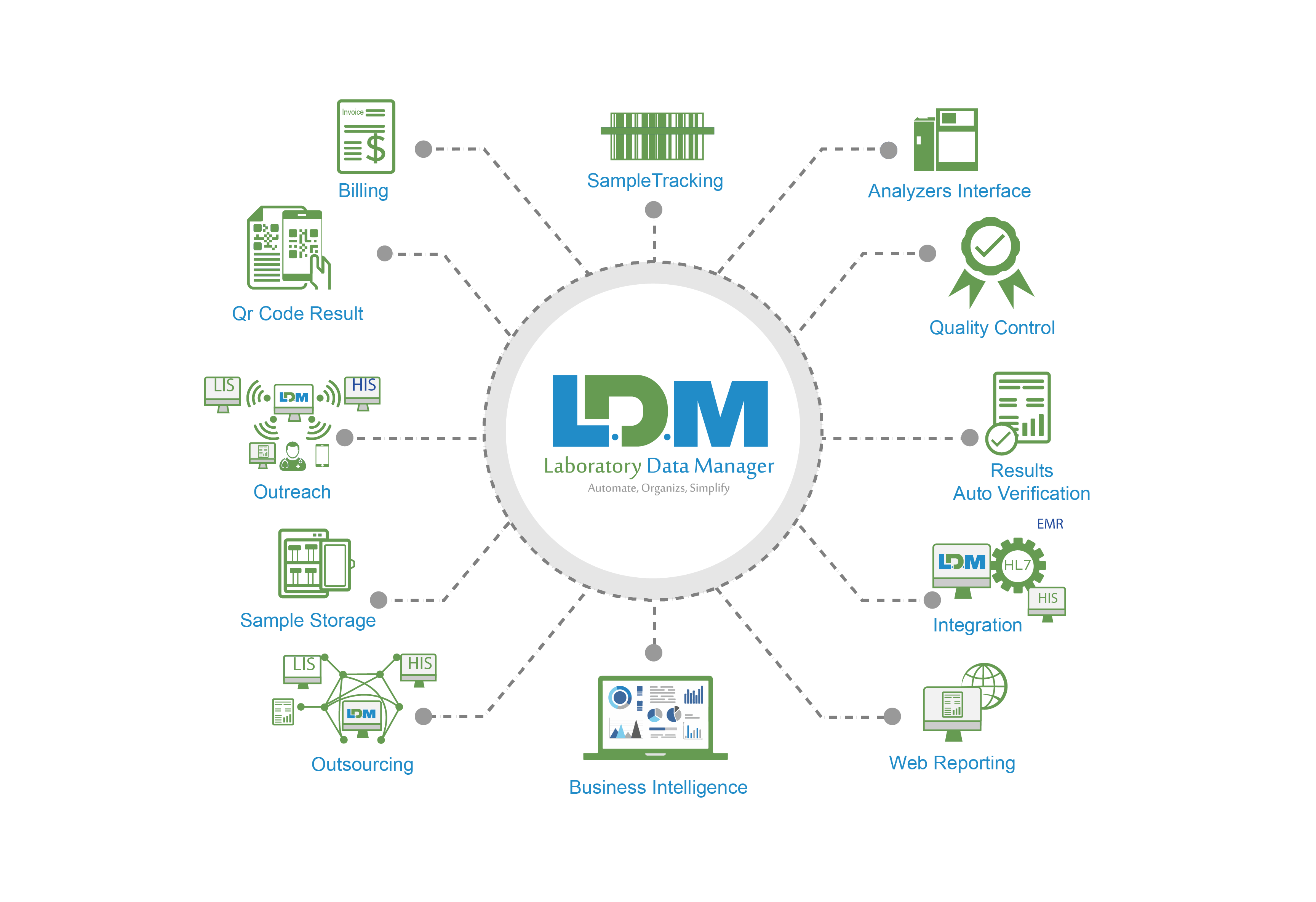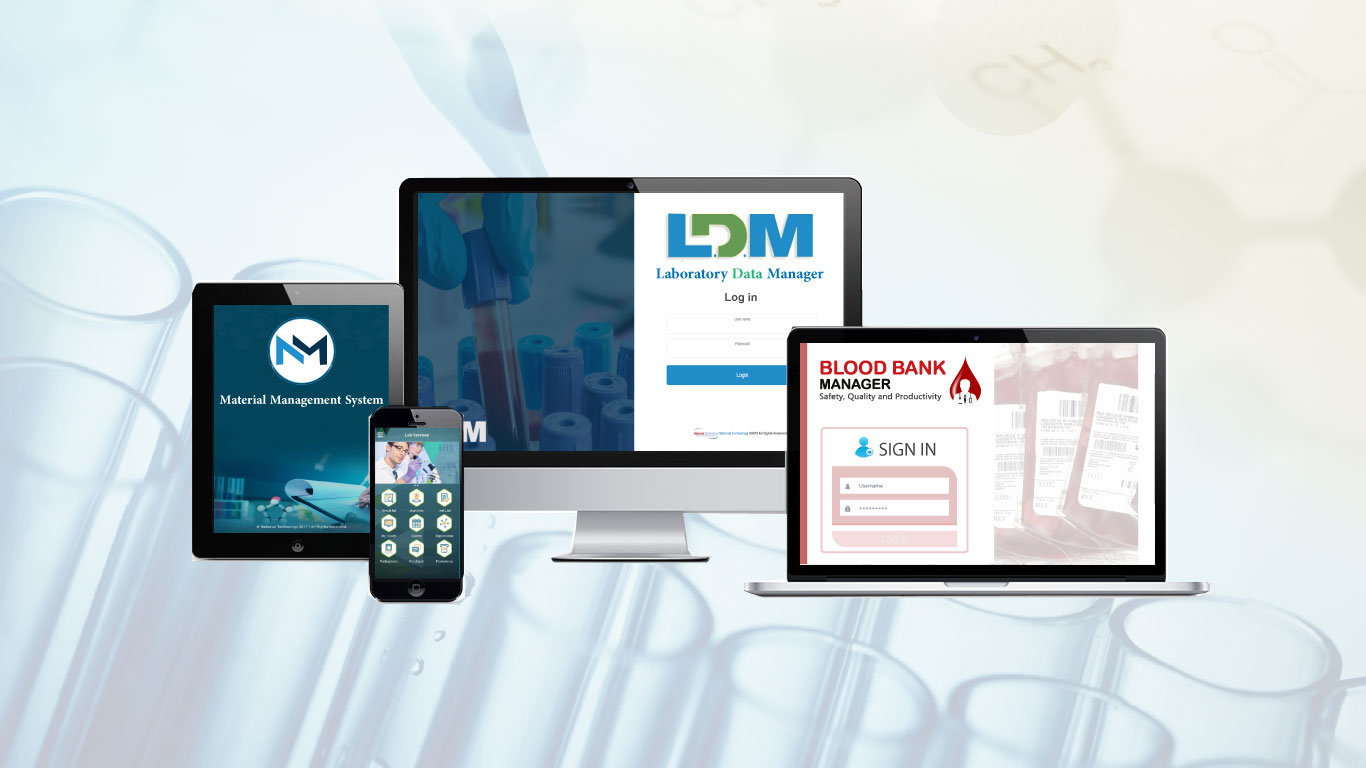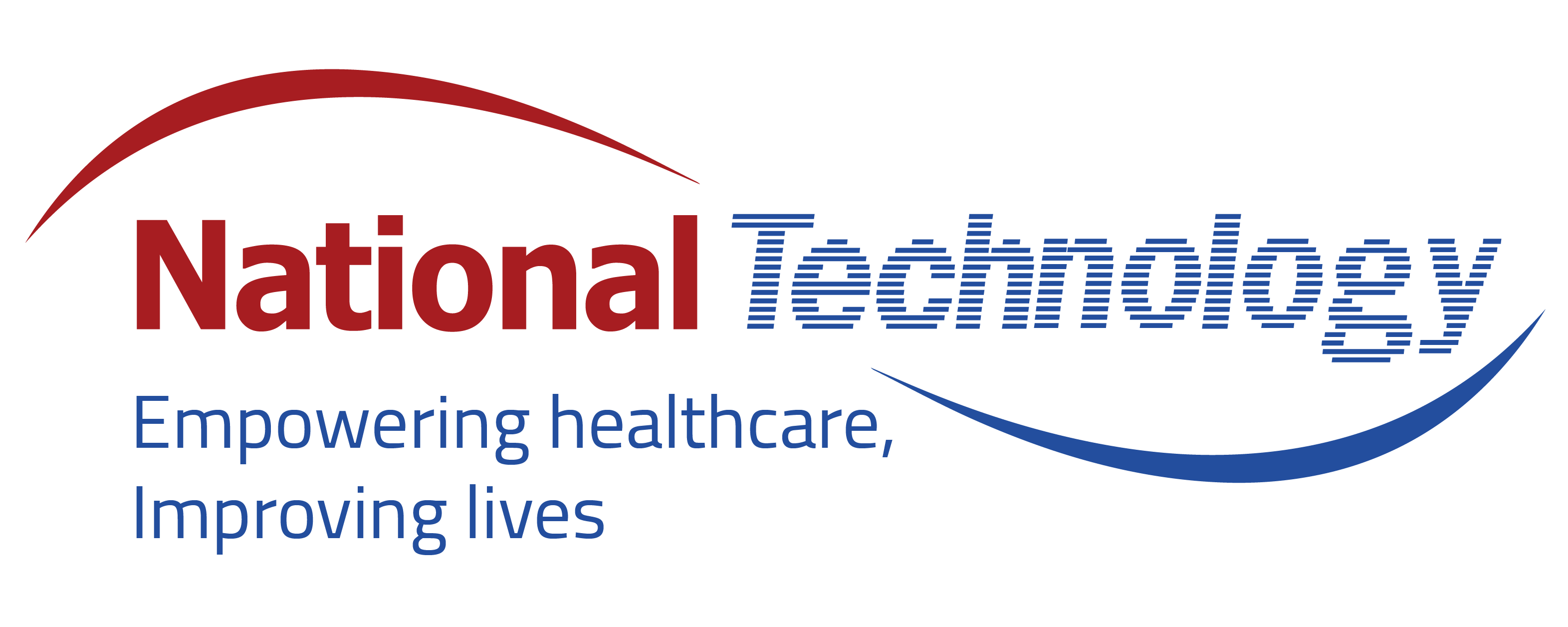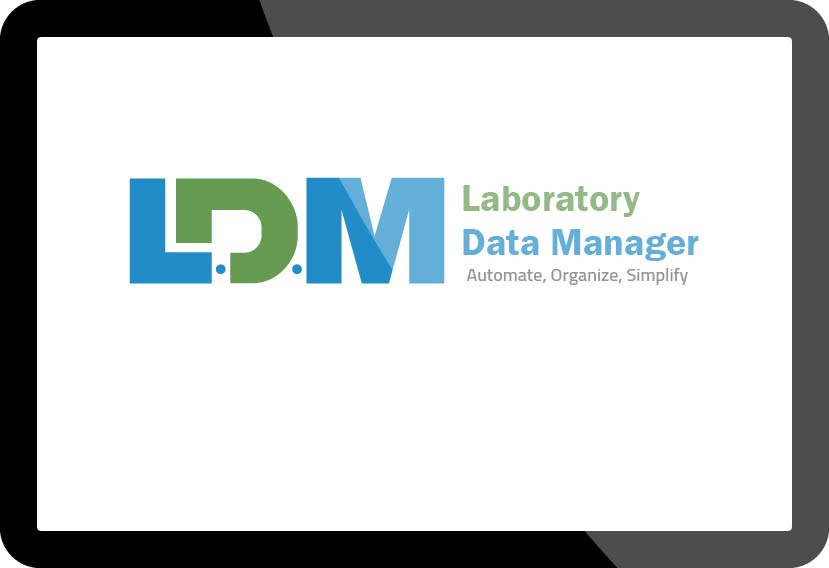

Products
Laboratory Data Manager (LDM)
The Leading LIS in the Middle East operating in 1500+ sites serving 250,000+ patients
Overview
Laboratory Data Manager “LDM” is a fully featured & robust laboratory information system (LIS) covering all functional areas of the multi-specialty medical laboratory.
LDM helps you provide better patient care, increase patients’ safety, increase overall efficiency, reduce operating costs, and increase profitability.
National Technology presents “LDM”, the best Lab Information Management System in Egypt and the Middle East, and FDA accredited.
LDM system helps you to fully automate your medical lab and increase productivity while meeting international lab quality standards.
LDM is suitable for a broad variety of clients:
- Laboratory hospitals with under 100 beds up to mega hospitals with thousands of beds.
- Stand-alone commercial laboratories.
- Mega laboratory chains and networks with multiple testing locations.
- Reference laboratories.

: Laboratory Data Manager Covers The Following Areas
- Order entry.
- Patient accounting and insurance management.
- Sample barcode labeling and Tracking.
- Test routing.
- Interface with automated analyzers and middleware.
- Results review and reporting.
- Results electronic delivery.
- Quality control monitoring and management.
- Integration with Hospital Information Systems “HIS”, Electronic Medical Record “EMR” Systems, and Financial Systems.
- Administrative reports.
- System security.
:Laboratory Data Manager Features
- Very easy operation.
- Customizable sample barcode label including patient data.
- Registration of full patient demographics.
- Supports ICD10, LOINC and CPT4 codes.
- Automated medical necessity check of requested tests against patient diagnosis.
- Supports sample splitting and dilutions.
- Direct interface with analyzers, lab automation, point of care, and pre-analytical systems.
- Automated calculation of reference range according to age and gender.
- Automated calculation of ratio and formula results.
- Automated delta check evaluation.
- Clear color-coded identification of abnormal results.
- Fast and effective search functions that can retrieve recent & old records using many types of search criteria.
- Complete billing module covering: Service price lists, Health Insurance, and Discounts.
- HL7 integration with other systems.
- Timestamps for all operations.
- Multi-user security levels and privileges.
- Dedicated histopathology module.

Laboratory Data Manager Core Module
LDM core module is the engine that runs basic LIS functions such as:
Patient data management, order entry, front office financials, test necessity check, sample labeling, worklist distribution, results entry, review and release, workflow monitoring, and management reports.
Sample Tracking
LDM allows you to scan all barcoded samples throughout their full lifecycle going through: Sample collection, distribution, preparation, analysis, storage, and disposal. LDM tracks the location and custody of each individual sample, which enables you to track any lost sample, and follow its chain of custody, while providing valuable reports about the average time consumed in processing station or any other location.
Analyzers Interface
The automation of data exchange between LIS system and automated laboratory analyzers dramatically speeds up the analysis process, and eliminates many potential sample programming and results-typing errors.
Analyzers identify barcoded samples’ IDs and receive their work orders from LDM. Results are transmitted from analyzers to LDM as soon as they are available. LDM interfaces to 200+ different clinical analyzer models including core-lab automation systems, pre-analytical instruments, and more.
Quality Control
LDM‘s sophisticated quality control features make QC management quick, efficient, and easy. Configurable Westgard and Levy-Jennings rules and support for qualitative and quantitative QC helps you get the most from your quality control data.
LDM provides clear QC monitoring graphs, immediate access to QC records and a set of comprehensive daily and cumulative reports.
Results Auto Verification
LDM applies user-defined algorithms and automatically applies them to results without the need for human intervention. These sets of actions could be the immediate verification of a result, repeat analysis, reflexive testing, the addition of comments, or suggested manual steps including a manual review of the result. The Auto Verification module ensures that every result consistently receives the same review process.
Integration
LDM integrates with Hospital Information systems “HIS”, Electronic Medical Records “EMR”, financial systems and other laboratories using standard HL7 protocol and implementing ICD10, LOINC and CPT 4 codes.
Custom Integrations can be developed for systems that do not support the HL7 format.
Web-Based Reporting
Laboratory results’ reports can be viewed, saved and printed online. Web-based reporting saves the consumed time and effort during the collection of printed results. It can be securely used by hospitals, other labs, doctors' clinics, and patients.
Business Intelligence
LDM-BI puts analytic tools at the fingertips of laboratory managers to improve decision-making, cut costs and identify new business opportunities. With LDM-BI, laboratory managers can analyze data themselves, rather than wait for IT to run complex reports. This infinite flow of data helps them take solid business decisions that would otherwise be based only on assumptions.
Key Benfits
- No more guesswork.
- Improve efficiency and save a lot of time by getting insights within seconds.
- Get the data you need when you need it, in a readily understandable format.
- Identify new opportunities.
- Get a 360° view of your customers, understand customer behavior better and use it to provide the customer with customized offers.
- Provide detailed workload data in a dynamic manner to better align staffing levels.
- Identify new revenue opportunities.
- Track operational KPI’s easily. Sampling, sample tracking, TAT.
- Material consumption.
- Analyzers utilization.
- Quality control.
- Workload forecasting.
- Sales and collection.
Outsourcing
LDM helps the lab to manage, control and track outsourced and “send-out” samples, which includes: Outsourcing lab setup, provided services, receiving results, automated preparation of “send-out” samples, track sending/receiving results, reporting, and KPIs for labs and their services.
Sample Storage
LDM enables the lab staff to store completed samples in fridges, freezers and all other storage locations. It facilitates storing, recalling, & disposing of samples. Recalling samples for adding extra tests or reruns has never been easier.
Outreach
LDM Outreach add-on module helps you receive electronic orders directly in your LIS from physicians, polyclinics, & small to mid-size laboratories with great ease & efficiency, where they can receive their test results over the internet & on mobile phones.
It enables you to run a more efficient, effective, and profitable outreach and lab-to-lab referral business, by helping you:
- Differentiate your services from competitors with a private branding of lab services.
- Improve turnaround time for test results delivery with real-time connectivity.
- Eliminate the need to re-label samples when they arrive at the lab, with instrument-ready sample collection barcode-labels to be produced in the collection facility.
System Management & Event Alerting
LDM system monitors and analyzes all operational and technical events that occur within the system, and then directs important alerts to the designated person.
Operational issues like results delays are directed to lab supervisors, QC violations are directed to QC officer, while server issues are directed to IT staff, all with escalation policies if they are not resolved in a defined period.
Billing
LDM supports multiple pricing policies and price lists. The system monitors credit limits and insurance coverage for all work orders. It captures charges while accounting for credit rules, order merges, order cancelations, and special charging requirements. Client invoices are generated easily and hospital’s patient charges are sent automatically to the financial system.

Depending on your business needs, infrastructure, and budget. LDM can be implemented through the following architectures:
Desktop version:
Works on local area networks for customers having unstable or inadequate network-connectivity infrastructure between their locations and branches.
LDM runs in each branch or location on a small server that synchronizes its orders, results, and financials with the main server in near real time over secure ordinary internet connections.
Desktop Version Advantage:
- End your worries about network-connectivity problems in remote areas with little to no connection.
- Safely guarantee that your laboratory operations are constantly running in every branch and collection site with zero downtime regardless of the connection.
- Real-time synchronization or sync later when a stable connection is back.
Web Version:
Web LDM is installed in a data center and all laboratory locations, branches, and even customers, use and access the system using the lab’s intranet or internet.
The data center can be a private center or dedicated servers within a secure public hosting/cloud provider or a hybrid mixture between private & public.
The beauty of Web LDM is in its architectural simplicity. All you need is a PC with a web browser, Internet or corporate intranet access. There is hardly any software to install on your PC, so you do not have to worry about the application’s configuration, computer’s disk space, memory, and conflicts with other software.
PCs come equipped with a web browser and Internet connectivity is now so prevalent that you can use Web LDM from anywhere at any time.
Web Version Advantages:
- Centralized data system.
- Easy access anywhere at any time through the internet.
- Easy configuration.
- Faster implementation and installation.
- Less needs for support.
- Lower investment costs.

